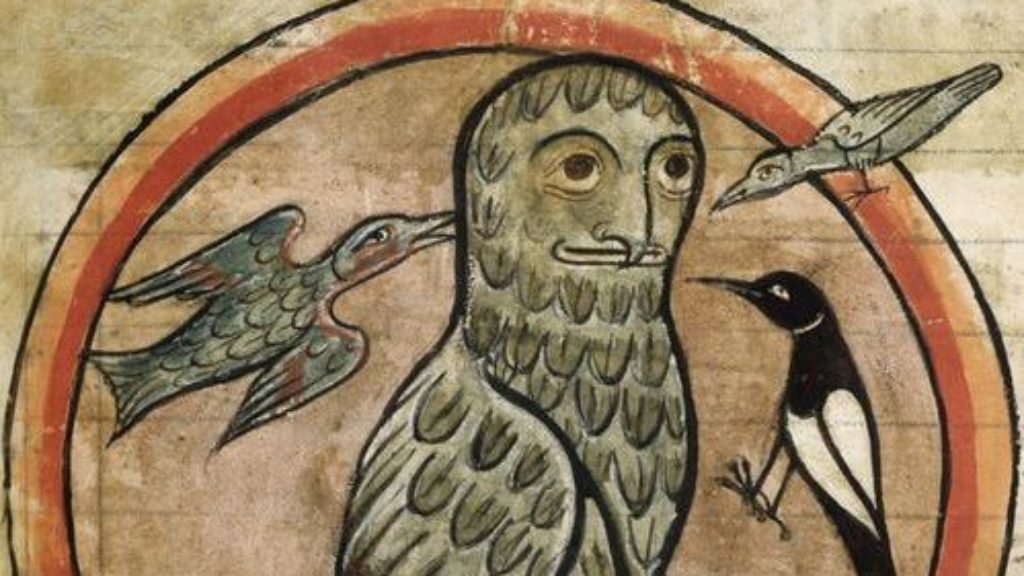God and Idolatry
Reading Saving God in shul, I was asked by the person sitting next to me what it was about. He may have been struck by the cover illustration, which reproduces a painting from the cathedral in Toledo, Spain, called The Despoilation of Christ. I answered: “In Jewish terms, it is about saving Yiddishkeit from the rabbis—as Maimonides tried and pretty much failed to do.” I had to say “in Jewish terms” because this witty and philosophically subtle book is profoundly Christian, more so than the author seems to realize. But, at the same time, it is also very Maimonidean in its thoroughgoing rejection of superstition and idolatry as an offense to true religion.
Notwithstanding Johnston’s pose of equal disdain for all three Western monotheisms, it turns out that he assumes the truth of the Christian idea that human beings are “fallen.” Original sin for Johnston is nothing as simple-minded as flouting God’s command and eating a piece of fruit (with or without a blessing). It is, rather, the “condition that comes with being human [which] is … not just the self-will that resists the other-regarding demands built into one’s internalized conception of the good. It is self-will combined with a covetous and violent protection of the compromised fruit we have plucked from the tree of knowledge of good and evil.” The all-encompassing nature of this condition necessitates a dramatic cure and (a philosophically reconfigured) Christ eventually enters the picture. Thus, despite Johnston’s apparent intentions, the book turns out to propound and defend a sort of post-Christian Christianity.
In what way is Saving God Maimonidean? Maimonides’ God is of very little use or comfort for most Jews. As the late Israeli gadfly Yeshayahu Leibowitz never tired of insisting, for Maimonides, humans are meant to serve God, not the other way round. (Leibowitz was not always wrong in his interpretations of Maimonides, only most of the time.) It is not the point of Judaism thus configured to see God as existing to serve our needs, answer our prayers, or comfort us. According to Maimonides, when Job realized this, he achieved enlightenment.
For Maimonides, worshipping any entity other than God is literally avoda zara, foreign worship, or idolatry. A Jew who worships a God with any corporeal qualities or a God with any human characteristics (such as anger, love, or mercy) is no less an idolater in Maimonides’ eyes than a Catholic genuflecting before an image of Jesus or a Hindu making offerings in a Temple filled with idols. Maimonides may or may not have believed in an after-life in any recognizable sense (the debate has been going on for over 800 years), but if he did, he certainly did not expect to find the next world a very crowded place. And of those who did make it in, far more would be physicists and philosophers than rabbis. In short, Maimonides was an intellectual elitist of the strictest sort—and so is Mark Johnston, though he is unequivocal in his rejection of an afterlife, even for metaphysicians.
Maimonides and Johnston both eschew supernaturalism. For the former, all that exists is God and the created universe; no angels, no demons, no objectively holy objects, places, times, or people. For Johnston, all that exists is the physical universe and the “Highest One” (Johnston’s capitalization amused me throughout the book), which “is not just the source of existence, but is continuously disclosing himself in the universe and in history, and that is what the universe and human history are for the sake of.” Johnston describes his position as “panentheism,” which is to be distinguished from classical theism on the one hand (the position of Maimonides), and from pantheism on the other, which identifies God with the natural realm. In contrast, “the panentheist asserts that God is partly constituted by the natural realm in the sense that his activity is manifest in and through natural processes alone. But his reality goes beyond what is captured by the purely scientific description of all the events that make up the natural realm.”
But what truly separates Maimonides from Johnston is a palpable care for humanity. For a man who claims to find the next world “in this world properly received” he has very little patience for the needs of real people. Because of his concern for real people, Maimonides, despite his pronounced intellectual elitism, devoted much of his time to the service of his community, and invested ten years in writing his great legal digest, the Mishneh Torah. Even more important, Maimonides saw this not only as an act of noblesse oblige, but ultimately as an imitation of God. But, to give him credit, Johnston, a professional philosopher, has written a work largely accessible to the serious common reader, and is also kind enough to warn us when he is about to engage in the sort of intellectual pyrotechnics which are characteristic of his profession.
Johnston’s belief in the fallen nature of human beings also separates him from Maimonides or Maimonideanism. Maimonides had no illusions about the low moral state of most human beings, but like all legitimate exponents of the Jewish tradition, he did not think that human beings were so fallen that they could not rise. That is the point behind his naturalistic messianism (a messianism which really has no pressing need for a Messiah, even though he accepts the traditional view that there will be one). “Belief in God,” Johnston avers, “is not a matter of believing in the proposition that he exists; it is an orientation in which the Highest One comes into view, with salvific effect.” But the Jewish tradition recognizes a category of chasidei ummot ha-olam (the righteous among the nations of the world, among whom it would be hard not to include Mark Johnston) who are, in Christian terminology, “saved” without any specific “orientation” to the “Highest One.” This is, in part, a consequence of the idea that human beings are born pure, uncontaminated by original sin, unfallen. That is also what makes possible Maimonides’ naturalist messianism. Only a truly fallen world needs a truly miraculous savior.
One more point. The rabbis of the Talmud disapproved of the figure of King David as described in the Books of Samuel (a randy Mafia thug) and turned him into a pale and studious yeshiva bochur who rarely left the confines of the study hall. Maimonides gave the rabbis a dose of their own medicine and presented them (and the prophets of Israel) as something close to toga-clad philosophers. Neither interpreted the biblical God in literalist fashion. Johnston is well aware of this, but occasionally seems to pick on the God of Israel rather more than on Allah or Jesus. This is perhaps one more indication of the profoundly Christian nature of this profound book.
Suggested Reading

Persian Daughters of Israel
Leah Sarna imagines Jewish and Gentile women doing their laundry on the banks of the Tigris, sharing tricks for keeping their headscarves tied and their bedrooms pure. She reviews Shai Secunda’s new book on just how Babylonian the Babylonian Talmud was.

Our Challah Moment
America is having a challah moment that coincides with two food movements in popular culture.

Of Were-Owls and Wandering Jews
There were two Jewish shape-shifters in my Faerie and Zion reading this month.

The Sounds of Silence
In his latest book, John Gray, himself a nonbeliever, takes atheists to task for trying to convince themselves that the world is organized according to an intelligible principle—a proposition he believes they inherited from monotheism.
Comments
You must log in to comment Log In